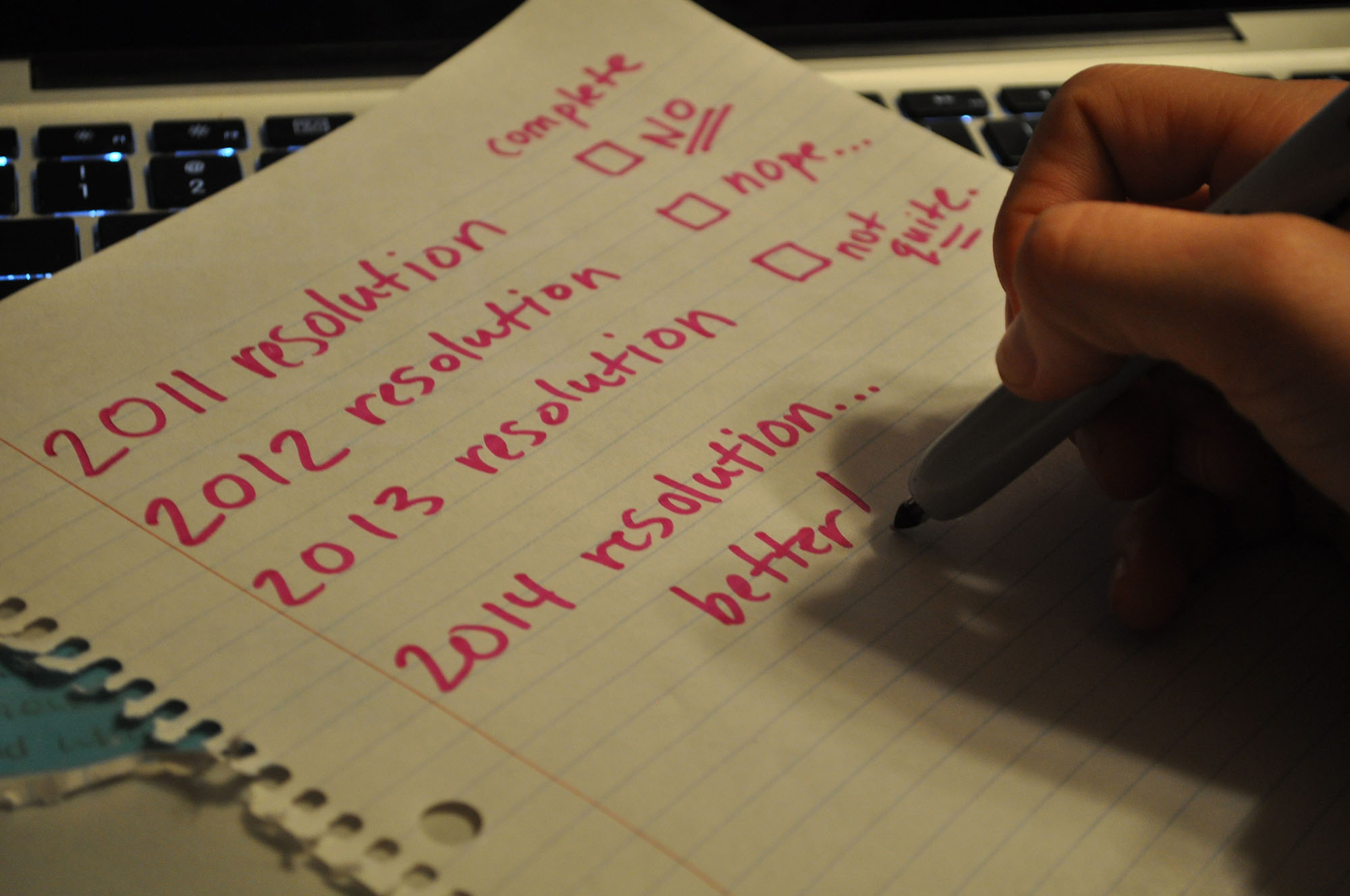The end of the year is when people begin to reflect back on the events that occurred in the previous months and assess how the year played out. We calculate our experiences, which boil down to a position on a continuum of good to bad. Important life events such as weddings and graduations weigh in on this, as do accomplishments big and small, such as running your first marathon or surviving a particularly rough semester.
As we reflect back on the year, we then determine what could have been better. From this vantage point we evaluate what is in our control to change and then set out to do so. We decide that the year ahead will be better than all those that came before it. There is a major obsession in our society with this resolve to make the current year “better” than all those prior to it, neatly wrapped up in a New Year’s resolution or two.Sadly, resolutions tend to be broken within the first several weeks of the year. Why? Simply put, change is difficult and old habits die hard. It is easy to fall back to what is routine even if ultimately it does not make us happy.
Second, resolutions can be vague, making it difficult to measure achievement but easy to see a lack of progress. Setting the goal of exercising is too broad and therefore easy to manipulate or even eliminate from our busy schedules. We as humans are so good at bending the rules, especially when parameters are left largely undefined. In doing so we allow ourselves to outwit our big picture thinking. The societal mindset in the United States of America is looking for the quick fix. We are not only obsessed with making everything better but also having it right now. Unfortunately, when we leave behind the larger goal for any variety of reasons, it can leave us with feelings of defeat or that we were destined to fail from the start.
A third reason resolutions are broken is because they tend to focus on the negative, such as the habits or weight we feel we should loose. The way we frame goals sets the tone for the attitudes we have regarding those goals and consequently ourselves.
I suggest taking a different approach. Commit to working toward a goal you enjoy doing rather than making one that feels like punishment. Be creative! Join forces with your friends so you can encourage each other and keep one another accountable. Realize that starting new habits takes intentionality and the effort of simply keeping at it day after day. You might start small by setting your first milestone for two weeks and at that point if you still like it, keep it for two more weeks. If not, change it up. If you miss the mark on one particular day, fight the temptation to completely throw in the towel. Goals can be set, reset and adjusted at any point during the year, not only on January 1st. Let us start 2014 with a positive and realistic outlook.



